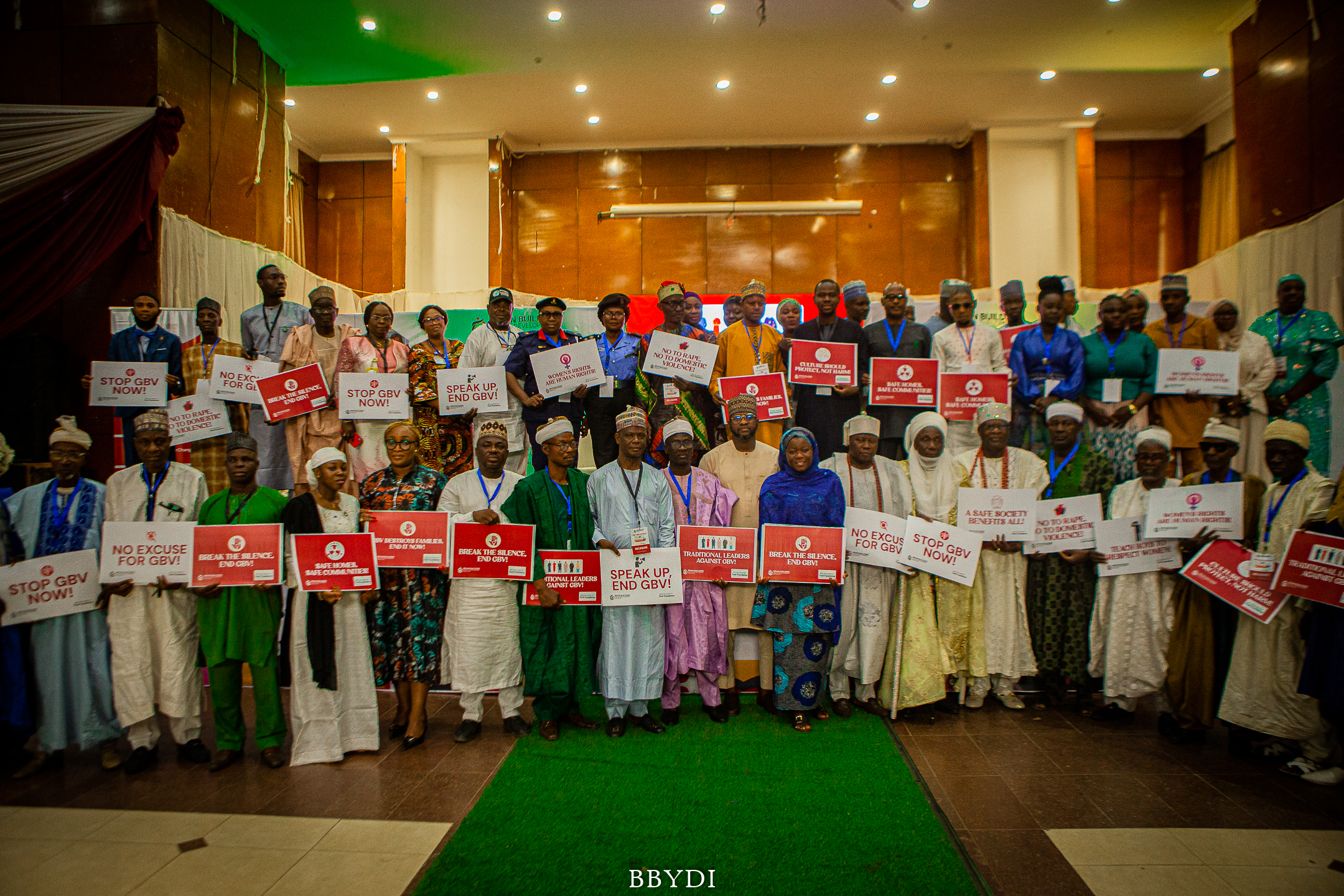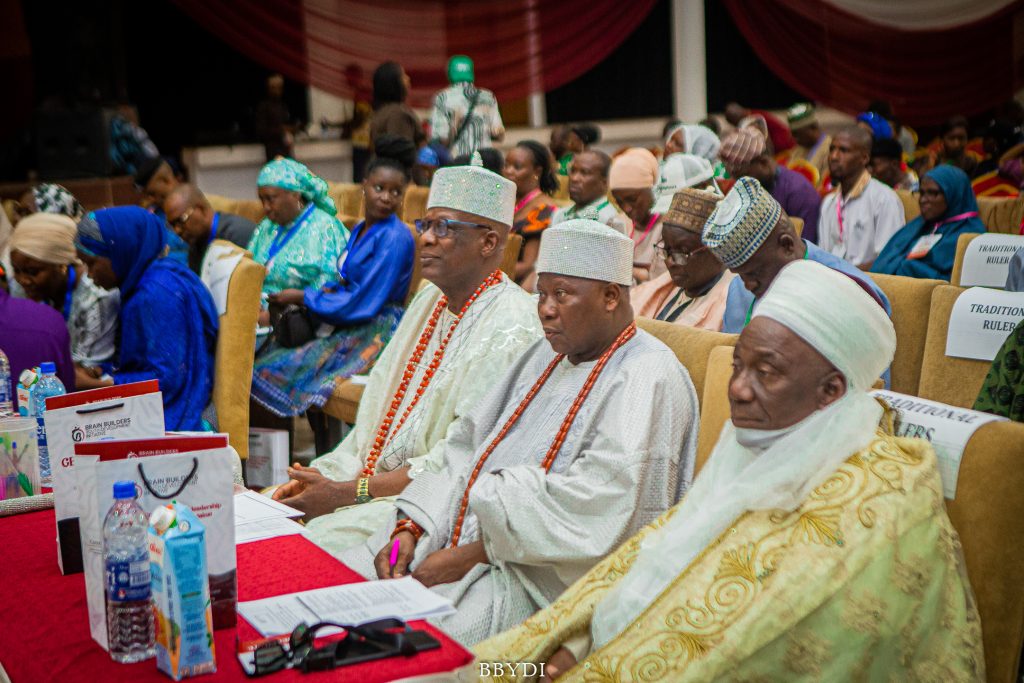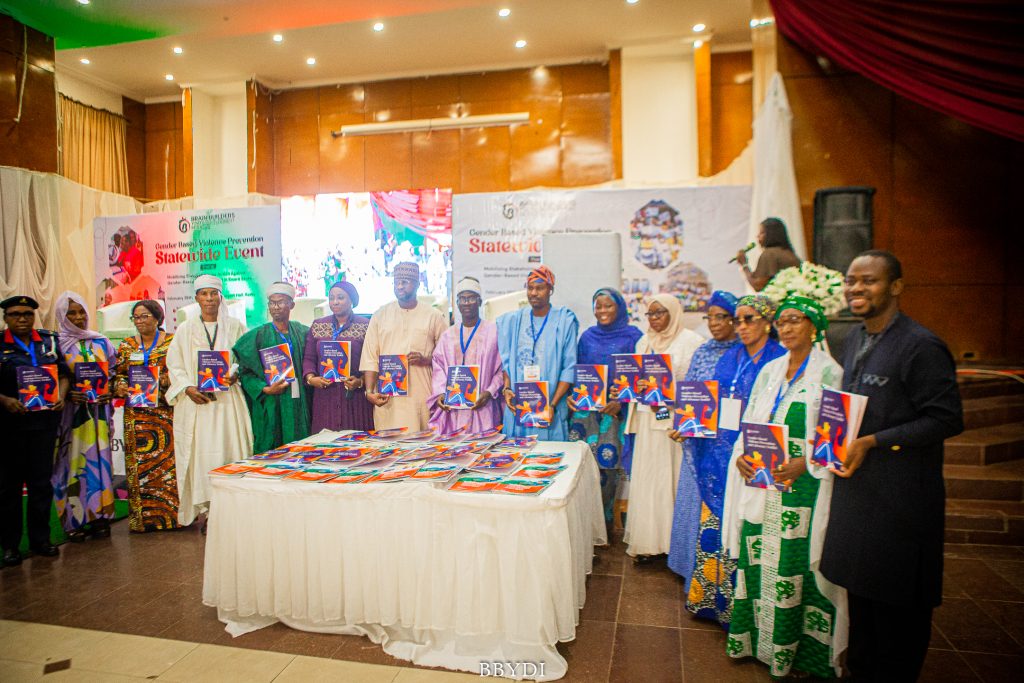The Emir of Ilorin, Dr. Ibrahim Sulu-Gambari has condemned the rising menace of Gender-Based Violence (GBV), emphasising that it “goes against our core cultural and religious values of compassion, justice, and the protection of the vulnerable.”
He made this declaration at a stakeholders’ meeting convened on Wednesday in Ilorin, the Kwara State capital by the Brain Builders Youth Development Initiative (BBYDI) to combat GBV in the state.
Themed, ‘Mobilising Stakeholders for Action Against GBV in Kwara’, the programme brought together stakeholders, including traditional rulers, government officials, the media, religious and community leaders, security agencies and civil society actors.
Speaking at the event, the Emir, who was represented by the Daudu Jeje of Ilorin, Alh. Al-Haeri Abdulwahab, stressed that GBV undermines the dignity, security, and well-being of not only the victims but also their families and communities at large.
The monarch, who acknowledged the significant role that leaders play in shaping societal norms and values, encouraged fellow traditional rulers to join him in championing the fight against GBV, noting that collective effort was required to prevent violence, support survivors, and promote lasting change.
“Gender-Based Violence (GBV) is a pervasive challenge that undermines the dignity, security, and well-being of countless individuals. As leaders and custodians of tradition, we have a profound responsibility to ensure that our communities become havens of peace, respect, and equality,” he noted.
The highlight of the event was the launch of some resource documents on GBV, including a Factsheet, Issue Brief, and the GBV Prevention and Advocacy Toolkit, developed by BBYDI.
The organisation’s Global Director, Abideen Olasupo, explained that the “GBV Prevention and Advocacy toolkit provides comprehensive strategies for preventing violence, supporting survivors, and fostering lasting societal change.”
Dr. Sulu-Gambari described the toolkit as a timely and vital resource for traditional rulers and other leaders to lead the fight against GBV, noting that he was particularly encouraged by the emphasis the document places on partnership and community engagement.
He stressed that ending GBV requires collaboration between traditional rulers, government agencies, and civil society organisations to challenge harmful norms and empower both women and men to be part of the solution.
“This toolkit is a call to action. I encourage every traditional ruler to embrace the guidance it provides, to adapt it to their unique contexts, and to commit to a future where violence has no place in our homes, our streets, or our hearts. Let’s honour the sacred trust placed in us as leaders and create a legacy of peace, dignity, and progress,” the Emir stated.
In his address, the Kwara State Governor, Abdulrahman Abdulrazaq reaffirmed his administration’s commitment to tackling GBV through policy enforcement, legal action, and community-driven initiatives.
The governor, who was represented at the event by his Senior Special Assistant on Community Development, Dr. Lawal Olohungbebe, noted that GBV was not only a criminal offense but also a deep-rooted societal problem that requires collective action from government, traditional leaders, and civil society.
He commended BBYDI for its advocacy efforts against GBV in Kwara and working towards creating a safer and more inclusive society.
Also speaking, the First Lady of Kwara State, Ambassador Olufolake Abdulrazaq, described GBV as a pressing issue that demands collective action from all sectors of society. She declared her support for all initiatives aimed at protecting the rights and dignity of women and girls.
Earlier in her welcome address, the executive director of BBYDI, Nura Jimoh-Sanni said her organisation remains commited to combating GBV, ensuring that no survivor suffers in silence, and that communities take a stand against all forms of violence.
She commended the Kwara State Traditional Council and the Council of Ulama (Islamic scholars) for embracing and supporting her organisation’s advocacy efforts to address GBV in the state.
“Since we launched our GBV prevention advocacy project in Kwara last year, we have held a one-on-one engagement with all first-class traditional rulers across the state. We have also organised GBV prevention workshops for high chiefs across the three senatorial districts, and also aired different advocacy programmes on radio,” the executive director disclosed.
Jimoh added that “the recent tragic murder of Hafsoh Lawal in Ilorin by one Abdulrahman Ballo, is a painful reminder that we must do more to protect women and girls from all forms of violence. It is not just a personal or family issue; it is a societal crisis that demands urgent and collective action.”
He made this declaration at a stakeholders’ meeting convened on Wednesday in Ilorin, the Kwara State capital by the Brain Builders Youth Development Initiative (BBYDI) to combat GBV in the state.
Themed, ‘Mobilising Stakeholders for Action Against GBV in Kwara’, the programme brought together stakeholders, including traditional rulers, government officials, the media, religious and community leaders, security agencies and civil society actors.
Speaking at the event, the Emir, who was represented by the Daudu Jeje of Ilorin, Alh. Al-Haeri Abdulwahab, stressed that GBV undermines the dignity, security, and well-being of not only the victims but also their families and communities at large.
The monarch, who acknowledged the significant role that leaders play in shaping societal norms and values, encouraged fellow traditional rulers to join him in championing the fight against GBV, noting that collective effort was required to prevent violence, support survivors, and promote lasting change.
“Gender-Based Violence (GBV) is a pervasive challenge that undermines the dignity, security, and well-being of countless individuals. As leaders and custodians of tradition, we have a profound responsibility to ensure that our communities become havens of peace, respect, and equality,” he noted.
The highlight of the event was the launch of some resource documents on GBV, including a Factsheet, Issue Brief, and the GBV Prevention and Advocacy Toolkit, developed by BBYDI.
The organisation’s Global Director, Abideen Olasupo, explained that the “GBV Prevention and Advocacy toolkit provides comprehensive strategies for preventing violence, supporting survivors, and fostering lasting societal change.”
Dr. Sulu-Gambari described the toolkit as a timely and vital resource for traditional rulers and other leaders to lead the fight against GBV, noting that he was particularly encouraged by the emphasis the document places on partnership and community engagement.
He stressed that ending GBV requires collaboration between traditional rulers, government agencies, and civil society organisations to challenge harmful norms and empower both women and men to be part of the solution.
“This toolkit is a call to action. I encourage every traditional ruler to embrace the guidance it provides, to adapt it to their unique contexts, and to commit to a future where violence has no place in our homes, our streets, or our hearts. Let’s honour the sacred trust placed in us as leaders and create a legacy of peace, dignity, and progress,” the Emir stated.
In his address, the Kwara State Governor, Abdulrahman Abdulrazaq reaffirmed his administration’s commitment to tackling GBV through policy enforcement, legal action, and community-driven initiatives.
The governor, who was represented at the event by his Senior Special Assistant on Community Development, Dr. Lawal Olohungbebe, noted that GBV was not only a criminal offense but also a deep-rooted societal problem that requires collective action from government, traditional leaders, and civil society.
He commended BBYDI for its advocacy efforts against GBV in Kwara and working towards creating a safer and more inclusive society.
Also speaking, the First Lady of Kwara State, Ambassador Olufolake Abdulrazaq, described GBV as a pressing issue that demands collective action from all sectors of society. She declared her support for all initiatives aimed at protecting the rights and dignity of women and girls.
Earlier in her welcome address, the executive director of BBYDI, Nura Jimoh-Sanni said her organisation remains commited to combating GBV, ensuring that no survivor suffers in silence, and that communities take a stand against all forms of violence.
She commended the Kwara State Traditional Council and the Council of Ulama (Islamic scholars) for embracing and supporting her organisation’s advocacy efforts to address GBV in the state.
“Since we launched our GBV prevention advocacy project in Kwara last year, we have held a one-on-one engagement with all first-class traditional rulers across the state. We have also organised GBV prevention workshops for high chiefs across the three senatorial districts, and also aired different advocacy programmes on radio,” the executive director disclosed.
Jimoh added that “the recent tragic murder of Hafsoh Lawal in Ilorin by one Abdulrahman Ballo, is a painful reminder that we must do more to protect women and girls from all forms of violence. It is not just a personal or family issue; it is a societal crisis that demands urgent and collective action.”



